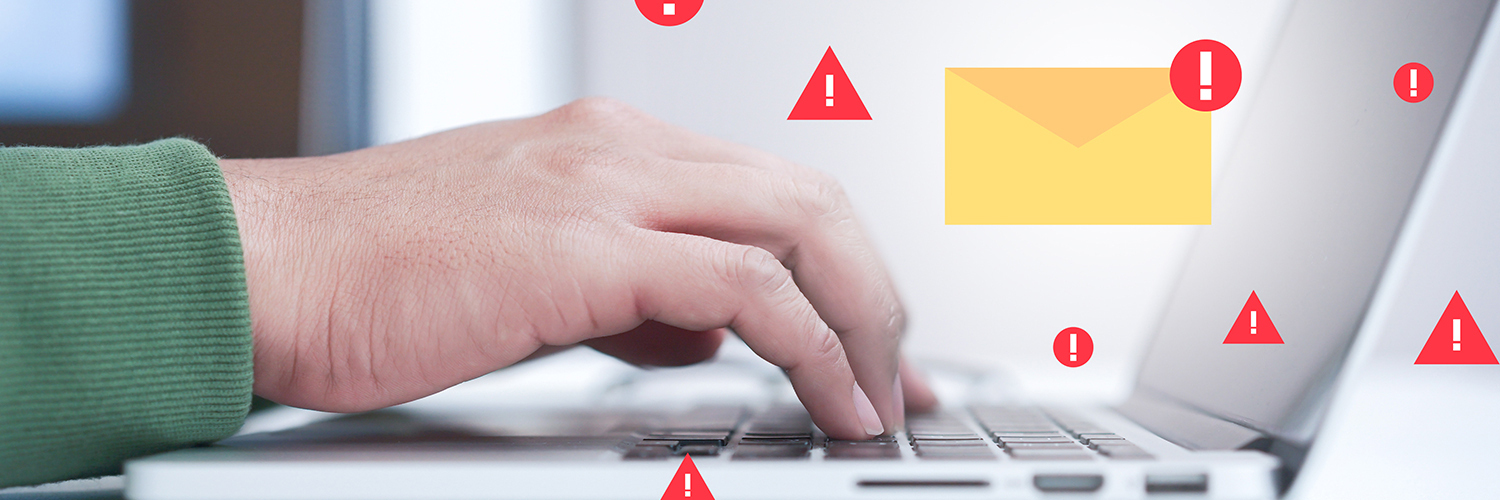Skipping the shops and buying your Christmas haul online? We don’t blame you. Shopping online is quick and convenient, and with most retailers offering next-day or even same-day delivery, it’s never been easier to get Christmas-ready from your sofa. But just as you might watch your purse or pockets when out in a busy shopping centre, it’s important to stay safe whilst shopping online.
Unfortunately, Christmas is prime time for scammers. They’re always devising new ways to cheat deal-hunting customers out of their cash, and their methods are getting much more sophisticated. But don’t fear – there are a few things you can do to keep safe online whilst bagging those Christmas bargains.
Don’t use public Wi-Fi

Public Wi-Fi networks are handy in a pinch but come with major security compromises. Never buy stuff online when you’re using a public Wi-Fi network. Your connection is nowhere near as secure as it is when you’re using your own mobile data or home broadband, which means that determined fraudsters can access the data you provide and potentially wreak havoc. Stick with mobile data if you want to make a quick purchase on the go, or wait until you’re home with your feet up.
Be dubious

In a world of online bargains, remember this: if it seems too good to be true, it probably is. Plenty of fake online retailers set up shop around the festive season, claiming to sell big ticket tech at unbeatable prices. Look out for odd bogus emails in your inbox, purporting to be a legitimate retailer with an unmissable pre-order deal.
Of course, we don’t want you to miss out on a great (legitimate) deal. Many genuine businesses send out festive emails with deals, price reductions and voucher codes. Just be sure to check the email address is trustworthy. Retailers will usually have an email address where the company name follows the ‘@’. So, if the email ends with a Gmail or Outlook, or is made up of a bunch of numbers and letters, it’s probably a scam.
Quick tip:
Don’t assume that just because the email address checks out and the site seems professional, that you’re guaranteed to get what you pay for. Check out the retailer’s Trustpilot score to see what other customers have to say about the service they’ve received. You’ll know what to expect when you buy from the company, or even to steer clear if there are lots of negative reviews.
Pay securely

Finding the right place to buy your Christmas pressies is the first step. Making sure your payment details stay private is the second.
We can’t stress this enough: always check for HTTPS at the start of the URL, or the padlock icon on the HTML bar when buying online. It means that the website you’re buying from has secure SSL encryption, and no potential third-parties or cyber-criminals can read or change the data you send to the retailer when you complete your transaction.
If you use Google Chrome, the browser flags any page that doesn’t have SSL encryption to make sure you’re aware. Without it, your payment data isn’t safe.
Want to go a step further? Use a third-party payment system like PayPal. With PayPal, you won’t need to enter your card details on the sites you buy from. Instead, you’ll be taken directly to the PayPal site, where you can securely log into your account and pay without sharing personal info. For extra security, you can even set up 2-factor authentication when logging into PayPal. This will send you a 6-digit code via text message which you’ll need to access your account once you’ve entered your password.
Don’t give out unnecessary personal info

Even if you’re shopping with a well-known retailer, don’t give out personal data that’s not needed. Many websites have been hacked in recent years, compromising the security of customers’ data. Unnecessary personal info like date of birth gives scammers the contextual info they need to use your identity or finances. Make sure to only give the bare essentials required to complete the purchase and have it delivered to the right place.
Keep an eye on your finances

It’s always a good idea to keep an eye on your financial statements, and especially so during busy shopping periods. If you’ve got online or mobile banking, it’s easy to monitor your incomings and outgoings. Look out for new credit cards, loans or transactions on your accounts that you don’t recognise. If you do find anything suspicious, report it to your bank as soon as possible.
Protect your device with antivirus

It’s worth buying reputable antivirus software to keep your PC, phone and tablet protected against any security threats and keep your financial info secure.
Many antivirus programs like McAfee and AVG come with a website checker that let you know if a site is safe to browse and do business with before you even get to the homepage. Just be sure to keep the software updated to stay one step ahead of any potential harm online.
Want to find out more about staying safe online? Read our guide to protecting your online identity.
Got any online safety tips? How do you shop safe? Let the Community know below.



